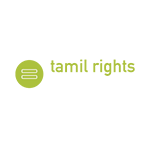Sri Lanka is yet another victim of an elected authoritarian populous government. Once elected as the current President, the prime suspect of war crimes and crimes against humanity, Gotabaya Rajapaksa, declared that his unilateral decision to withdraw from the resolution of United Nation Human Rights Council. The government which operates as a politico-military regime has been rewarded instead of reprimanded for their role in the war of attrition and genocide against its own people. The current Prime Minister and brother of the President, Mahinda Rajapakse, who was President in 2009 promised UN Secretary General Ban-ki-Moon in May 2009 to ensure domestic justice and accountability mechanisms and reconciliation.
The culture of impunity that thrived during their oligarchy has returned with the refinement of military intervention in civil affairs, exacerbated by the COVID-19 pandemic, and an even bolstered armed force than was at the height of the war. The post-war regime sans white vans that carried out the extermination of dissidents, elected political leaders and journalists in large numbers has become even more sophisticated with new drone regiment and intelligence organisations. Ironically, the Prevention of Terrorism Act is still employed to incarcerate Eelam Tamils and Muslims even for dissension. The well-oiled megalithic structural genocidal machinery remains unrelenting in silencing the voice of political dissent, deny Transitional Justice and political solutions to Eelam Tamils and others. The current regime not only aspires for unbridled Presidential powers but also carries forward a highly lethal form of absolute ethnic majoritarianism which kindles extreme nationalist and chauvinist ideologies.
It is thus vital that transitional justice is achieved through lawfare in order to hold those responsible for the carnage of 2009 and put a stop to the ongoing systemic genocide. Transitional justice is imperative in addressing fundamental issues of the ethnic conflict in Sri Lanka and preventing the re-emergence of violence. We, the TRG, seek to carry forward the transitional justice process through universal jurisdiction to ensure justice and accountability for the systemic genocide of Eelam Tamils, achieve guarantees of non-recurrence and reparations, and to advocate and work for constitutional and security sector reform. We also aspire to create a platform in Sri Lanka for Eelam Tamils and other targeted groups to come together, engage in discourse, challenge discrimination and injustice, and participate in decision-making processes.
